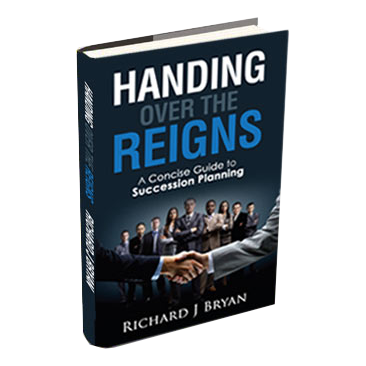Here’s a sobering fact: a full 70% of family businesses would like to pass their business on to the next generation, but only 30% will actually succeed at this generational transition. If you’ve attended one of my succession planning speaker keynote presentations or have been following this succession planning blog series, you’ve already gathered that this can be an incredibly challenging time for the business—and especially for the various family members involved.
So it won’t surprise you to learn that many businesses which fail to survive the succession process have fallen prey to family infighting. Here are a few reasons conflict situations that might arise during this complex and emotionally charged time—and how to defuse them.
Common Reasons for Conflict
Both in my travels on the succession planning speaker circuit and in my personal experience weathering my own family’s handover, one of the most predictable reasons for conflict is generational differences. Of course, we’d all like to assume that sharing a relational bond with our family members automatically makes us share values, perspectives and approaches. Sadly, this isn’t true. The outgoing generation often has different views about money, authority, management and a variety of other issues than the incoming leaders.
Good old-fashioned rivalry can also rear its ugly head during this process. Not unexpectedly, it’s quite common in situations in which multiple successors, whether they are siblings or not, are competing for key leadership roles. But as I’ve often discussed with my succession planning speaker circuit clients, rivalry isn’t limited to siblings!
It can also bubble up with members of older generations who may not have been raised in an environment of self-awareness and proactive leadership training, as today’s budding leaders have been. If a senior or heritage leader has been in a position of power for many years, even the mere discussion of handing over the reins may feel threatening—and thus trigger some rather primal defensive behavior.
Tips for Defusing Family Conflict
This may go without saying, but the number one way to avoid and alleviate conflict during a business succession is also the best way to avoid ANY kind of conflict: strong communication. According to a recent study conducted on family businesses, 90% of the family business owners surveyed have regular family or shareholder meetings to discuss business issues—and 70% meet on a regular basis to discuss family issues.
Holding regular meetings that cover both business and family topics is a wonderful way to work through the unique dynamics of this process. Together, family members and business stakeholders can collaborate on and agree upon a set of rules that will guide the business into its next iteration. It also helps to keep stakeholders who may not be involved in day-to-day operations up to date on important developments; sometimes, simple awareness is enough to keep potential conflicts or differences of opinion at bay.
Alas, no matter how critical regular communication is to the succession planning process, it’s not enough. You must first have a crystal-clear succession plan to communicate about! This is probably the topic I’m most often asked about on the succession planning speaker circuit, and I can’t stress enough how important it is—for more detail on this subject, read more about my 4-Step Succession Planning checklist here.
Parting Thought: Last Resorts First
In exceptionally large businesses with multiple potential successors, it may be wise to seek legal advice early in the succession planning process. While none of us like to think about lawyers’ fees unless the situation is extremely dire, my advice to you is this: now is indisputably the least expensive time to think about it.
Get an expert’s help whilst setting key boundaries, contracts, milestones and more, and you’ll be much less likely to find yourself in litigious circumstances. Fortunately, succession planning guidelines are a spectrum you can customize to your own unique situation; whether you end up needing something less binding, like a family charter, or some kind of formal shareholders’ agreement, you’ll have knowledgeable guidance and official documentation to help you stay on the path—and out of one another’s hair—throughout your succession adventure.
Here’s to Your Business Success,
Richard J. Bryan
Need a deeper dive on this complex subject? Schedule a succession planning speaker keynote presentation by calling 877-316-3110. For more tips on how to creating a succession plan, simply sign up for our mailing list.


